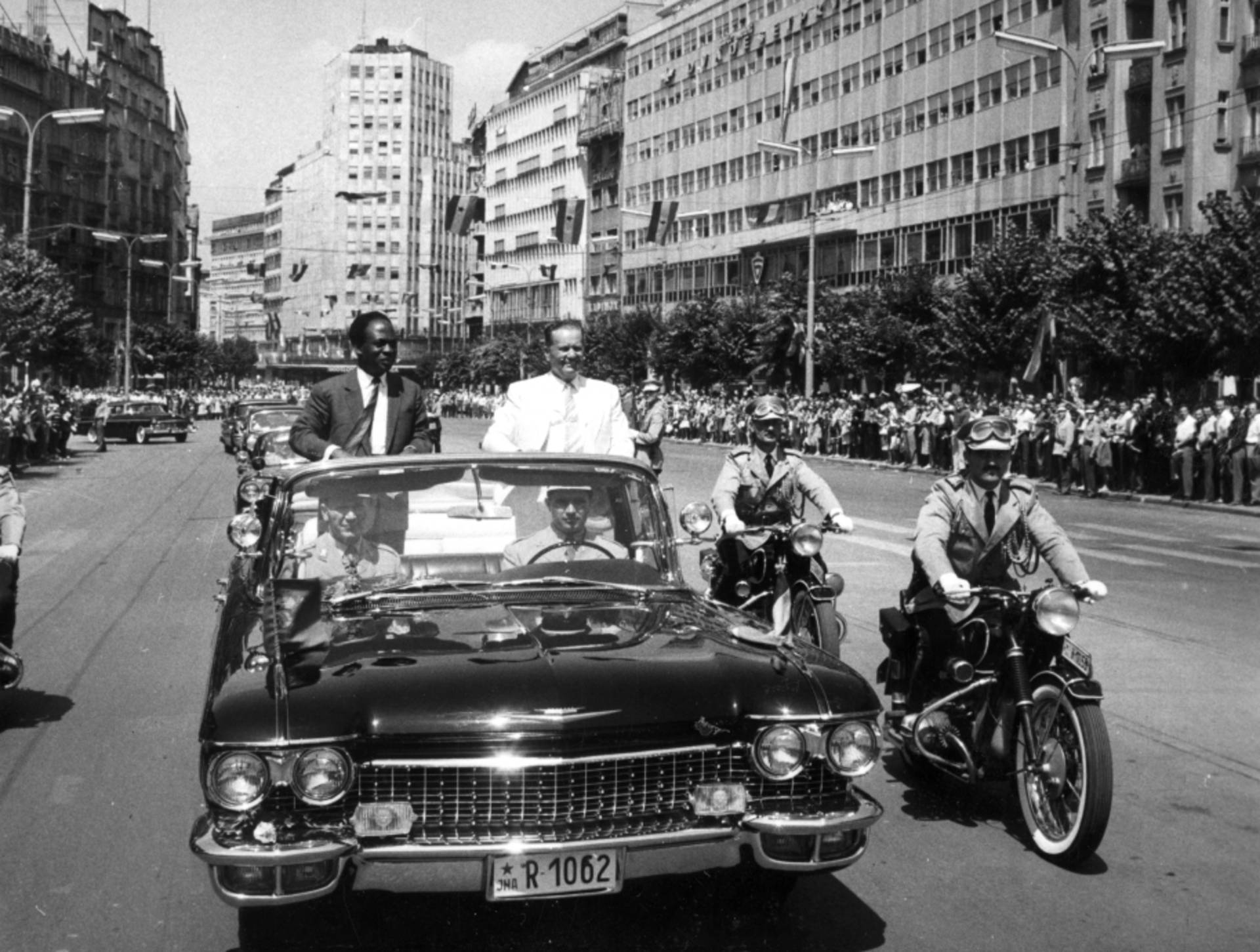Ghana's first President, Dr Kwame Nkrumah, is a controversial but loved historical figure in Ghana’s history.
As a leader and advocate of pan-Africanism, he led Ghana to independence in 1957.
From that point, Ghana became this beacon, a symbol of hope for all African countries.
His intellect and determination are admirable. Even though almost every aspect of his policies and philosophy remains under strong controversy, and he was blamed for ‘damaging the democracy and economy in Ghana’, he is still honoured and celebrated in Africa.
His CPP, as part of activities to mark Kwame Nkrumah Memorial Day today, has called on Ghanaians to rise above partisan politics and seek the development of the nation.
The party told state-owned Daily Graphic that entrenched partisanship in the governance architecture was leading Ghana nowhere and so it was time the ‘nation first’ attitude was adopted to spur development.
Here are some interesting facts about the first president of Ghana.
- His actual name was Francis Nwia-Kofi Ngonloma. He became Nkrumah because his teacher could not pronounce his name correctly. He changed his name officially to Kwame Nkrumah in 1945.
- Kwame was a teacher at a Roman Catholic primary school in Elmina.
- He was also a headmaster in the Axim school.
- When applying for studies in London School of Economics (LSE) under nationality he wrote "British Subject". At the time the Gold Coast or Ghana wasn’t independent just yet, but it preoccupied Nkrumah’s mind already.
- On his views on education, his probably first influence was his mother, followed by a German Roman Catholic Priest, George Fischer. He remained curious and constantly eager to learn throughout his life. His intellectual influences all together may seem rather irreconcilable. From the age of 6 to late teenage years, Roman Catholicism shaped his beliefs. Later, as a student, he spent a significant amount of time reading books and materials on philosophy, political science and history - from works of the greatest philosophers, political leaders to economical theories and practises. His reading list consisted from Nietzsche, Schopenhauer and Freud to Aristotle, Gandhi, Karl Marx and Hitler and so many more. He studied every theory in philosophy and politics. In his Autobiography in 1957 Nkrumah stated: "I am a non-denominational Christian and Marxist Socialist and I have found no contradiction between the two".
- Kwame Nkrumah also had a degree in Theology. He preached in Presbyterian black churches in New York and Philadelphia.
- Kwame Nkrumah was rather vocal about his ideas. He also embraced some Soviet ideas. He often referred to himself as "Africa’s answer to Lenin". In 1963 he even got, at the time exclusive, the Lenin Peace Prize. However, he did not agree to all the Marxism ideas and practices. In one of his essays where he outlines Christian, modern and Marxist interpretations, he expressed his disagreement with the Marxist concept of ownership. He wrote on "the idealism and impracticability of communistic theories". He also wrote that "communism seems to be unsuccessful in societies where it has been tried, because its principles are at variance with human nature, and even with the original nature of property itself". Regardless of what political practices Nkrumah supported and what he disagreed with, his supreme Goal was an independent Ghana and a united, free and dynamic Africa.
- Kwame Nkrumah was named honorary co-president in Guinea, where he lived for the rest of his life.
- He was into theatre and writing. One of his essays "Negro History: European Government in Africa" was published in The Lincolnian - Lincoln University student newspaper (The Lincolnian, April 12, 1938, p. 2, Lincoln University, Pennsylvania)
- He was also a member of the Philosophy Club at Lincoln University.
- He has written over 20 books, including an autobiography. He wrote the book "Dark Days In Ghana" while being in exile.
- In 2000 listeners of BBC World Service voted him Africa’s man of the millennium.
- Sadly, he never returned to Ghana alive.





